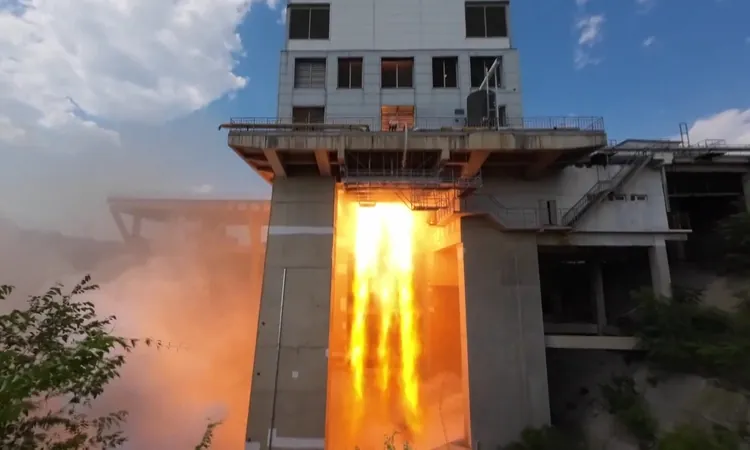
China's Game-Changer: Kerosene Engines Tested in One Day to Boost Launch Missions!
2025-01-19
Author: Siti
Introduction
On January 19, 2024, a remarkable achievement unfolded at the Baolongyu test site, managed by the esteemed Institute 165 of China Aerospace Science and Technology Corporation (CASC). For the very first time in history, engineers successfully completed three consecutive acceptance tests of liquid oxygen-kerosene engines in just one day!
Significance of the Milestone
This groundbreaking milestone marks a significant leap forward in China's capabilities to test and validate the main propulsion engines necessary for next-generation launch vehicles. This progress is expected to facilitate a surge in launch missions, which could put China on track to match or even surpass global space exploration competitors.
The Baolongyu Test Site
Operational since January 2005, the Baolongyu site plays a pivotal role in conducting acceptance tests for these crucial engines. Each engine must pass rigorous evaluations to ensure its performance meets the demanding standards required for flight readiness. The ability to conduct three successful tests in one day for two different types of these engines is particularly noteworthy and demonstrates China's growing proficiency in aerospace technology.
Government Support and Technological Advancements
The advancement isn’t merely coincidental. With strong backing from government authorities, Institute 165 has embarked on comprehensive capability enhancement projects over recent years. They have integrated digital technologies and innovative processes, effectively slashing the preparation time for engine tests from five days down to an impressive two days.
Future Goals and Commitments
The institute is now focused on constructing advanced testing facilities to bolster testing foundations, aiming for excellence and setting higher standards for future tests. By emphasizing digital improvements in testing systems and process control, they are primed to revolutionize not just their testing methods but the entire landscape of scientific research and production in the aerospace sector.
Looking Ahead
Looking ahead, Institute 165 is committed to establishing new quality benchmarks in liquid propulsion testing. Its future endeavors include enhancing testing process standardization, implementing on-site visual management, and advancing digital integration throughout operations. These efforts will ensure the timely delivery of China's next-gen launch vehicle propulsion engines, positioning the nation as a formidable player in global aerospace achievements.
Conclusion
As China continues to innovate and ramp up its test capabilities, the world will be eagerly watching how this affects not only national space ambitions but also international collaborations and competition in space exploration. Buckle up—China's space race is heating up!



 Brasil (PT)
Brasil (PT)
 Canada (EN)
Canada (EN)
 Chile (ES)
Chile (ES)
 Česko (CS)
Česko (CS)
 대한민국 (KO)
대한민국 (KO)
 España (ES)
España (ES)
 France (FR)
France (FR)
 Hong Kong (EN)
Hong Kong (EN)
 Italia (IT)
Italia (IT)
 日本 (JA)
日本 (JA)
 Magyarország (HU)
Magyarország (HU)
 Norge (NO)
Norge (NO)
 Polska (PL)
Polska (PL)
 Schweiz (DE)
Schweiz (DE)
 Singapore (EN)
Singapore (EN)
 Sverige (SV)
Sverige (SV)
 Suomi (FI)
Suomi (FI)
 Türkiye (TR)
Türkiye (TR)